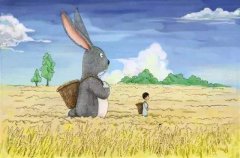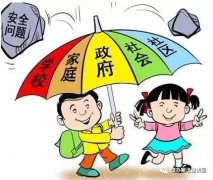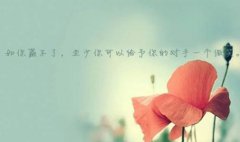大学英语精读第三册教案。包括课后习题、单词、短语等。
Lesson Six Twelve Angry Men (Part Two)
I. Teaching Objectives:
After learning this unit, students are supposed to:
1)get familiar with some grammatical points;
2)get a list of the new words and expressions and be able to use them freely in writing and daily conversation;
3) get familiar with the rules of word formation;
4) have a thorough understanding of the whole text: Twelve Angry Men
5) retell the text as a whole
II. Listening and speaking activities
1. Listen to the recording of the text and fill in the blanks about the main ideas of the article.
2. Talk about the judicial system in the United States and discuss the questions on the text.
III. Reading Comprehension and Language Activities
1. Pre-reading discussions:
1) Do people always mean what they say or say what they mean? Should we always take what people say at face value?
2) Why doesn’t the author give names to the characters in Part One of Twelve Angry Men ?
2. Background knowledge:
A jury
A jury is a body of individuals selected and sworn to inquire into a question of fact and to give their verdict according to the evidence.
The jury of American and English law most likely originated in early Anglo Saxon property proceedings, where a body of 12 knights or freemen who were from the area, and usually familiar with the parties, would take an oath and answer questions put to them by a judge in order to determine property rights
3. About the text:
The text is the second part of the play. The play gives sight into several aspects of the American court system.: (1)The accused is deemed innocent until and unless proved guilty beyond reasonable doubt; (2) The burden of proof is on the prosecutor;(3)in most cases, the verdict has to be unanimously reached. The majority of a jury is not sufficient to find a defendant guilty of a felony;(4)A trial doesn’t aim at discovering who committed a particular crime, but rather the innocence or guilt of the accused. This system is valuable and has avoided many terrible mistakes like in the case of this play, but it is not fallible and can in fact be quite precarious.
4. Language points
1) Words and expressions
(1) take the cake (AmE) spoken to be worse than anything else you can imagine.
(2) you bet: of course; certainly; you can be sure
(3) run for one’s life: to leave quickly because your life is in danger.
(4) run the show: to be in charge of the whole thing
(5)break the tie: to put an end to a situation
(6)9 to 3 in favor of acquittal:9 people for acquittal and 3 against.
2)Difficult structures:
﹡But supposing he really did hear this phrase, how many times have all of you used it?(p2
Supposing: in spoken English, we can use “suppose”.
Suppose your close friend were crazy about 后舍男孩, what would you say?
﹡Why did he leave it there in the first place?(p13)
In the first place. e.g.
If these programs make you so upset, why do you listen to them in the first place?
If you don’t care about your children, why do you have them in the first place?
You say that you just don’t like to talk. Then you shouldn’t have chosen language study as your career in the
大学英语精读第三册教案。包括课后习题、单词、短语等。
first place.
﹡assume (assumption) (P14)
假定,臆断I assume that you have heard the news. He ~d the report (to be)valid.
Farmers will have a bumper harvest, assuming (that) the weather is favorable.
承担,就职 ~ an obligation, ~ the premiership
呈现,采取,采用The situation ~d a threatening character.
~ a realistic attitude / ~ a false name
假装~ ignorance夺取~power/control of the city
assume, presume, deduce, infer
Presume: to take upon oneself without leave or warrant; to take for granted; to act or behave with undue
boldness
Deduce: to derive by reasoning推论;演绎
Infer: to derive a conclusion fr facts; guess
(1)The missing person is ___ dead after four days of the mine explosion.
(2)The date of the document can be ____ from references to the Civil War.
(1)presumed (2)deduced / inferred
﹡See to it that(p15):make sure注意,务必做到,保证
We’ll see (to it) that she gets home early.
See (to it) that you are not late again.
﹡Risk doing sth(p17): risk + gerund
Risk doing sth(p17): risk + gerund
﹡there’s enough doubt that we can wonder if he was there at all….
…there is enough doubt so that(p17)
“if” in this sense and “whether” can almost be used interchangeably except for two situations:
When followed by “to do”, only “whether” is used.
When followed by “or not”, only “whether’ is used
I don’t know whether to laugh or cry.
He could not decide whether he should take the offer or not.
﹡Bear (sth. or sb.) out (p33) confirm (sth) ; support (sb.)
John will bear me out / bear out what I have said.
Evidence bears out the idea that students learn best in small groups.
﹡Take the cake(p43)=take the biscuit (Bre): to be worse /better than anything you can imagine
前所未有的最坏或最好的;令人惊讶
I’ve heard some pretty dumb ideas, but yours takes the cake!
We have met quite a number of stupid men, but you take the cake.
﹡Let sth slip (through one’s fingers) (p47) to not taken an opportunity, offer, etc.; fail to grasp
没掌握住,没抓住
Don’t let chance like that slip through your fingers!
If we let him slip through our fingers this …… 此处隐藏:17296字,全部文档内容请下载后查看。喜欢就下载吧 ……
- 2020房地产销售主管年终工作总结 2020-08-29
- 虚拟多台位互感器检定装置投资项目可行性分析 2020-08-29
- 大学助学金申请书范文1700字 2020-08-29
- 教师的工作计划 2020-08-29
- 高中历史 必修二 第三单元复习课件 2024-10-23
- (选修5)1-1有机化合物的结构特点作业 2024-11-04
- 液压阀符号及几位几通的办判断方法 2021-06-09
- (目录)2018-2023年中国绿色食品行业电子商务发展可行性 2025-04-10
推荐阅读
四宫格-儿童数独练习60题(支持打印)
《铁路建设项目工程质量管理办法》铁总建设[2014]292号
Unit 1 Section A 时间观念强的美国人
今日头条

每日精选
-
 2020教师资格幼儿保教知识与能力考前冲刺题及答2020-09-15
2020教师资格幼儿保教知识与能力考前冲刺题及答2020-09-15 -
 未成年工不得从事哪些劳动2020-09-15
未成年工不得从事哪些劳动2020-09-15 -
 最真诚的周末祝福短信参考2020-09-15
最真诚的周末祝福短信参考2020-09-15
- 1、支付成功后,为何无法下载内容?付费后下载不了,请核对下微信账单信息,确保付费成功;已付费成功了还是下载不了,有可能是电脑的浏览器兼容性问题或者手机机型不支持的问题。
- 2、付费后能否更换浏览器或者清理浏览器缓存后进行下载操作?更换浏览器或者清理浏览器缓存会导致下载不成功,请不要更换浏览器和清理浏览器缓存。
- 3、如何联系客服?






